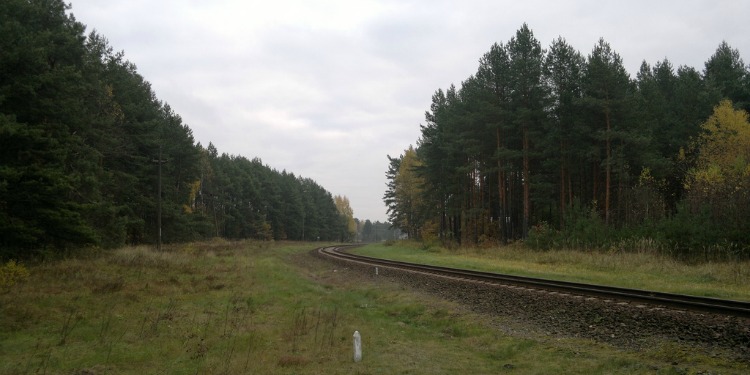Poet in the Woods
The Fellowship | January 24, 2019

Am I the last poet singing in Europe?
Am I making song now for corpses and crows?
Such were the thoughts that poet Avraham Sutzkever put to paper in 1943, a year which saw his infant son killed in the Vilnius Ghetto and his mother murdered at the infamous Ponary Massacre outside the town. Sutzkever survived the Holocaust, made aliyah (immigrated to Israel), and became the Holy Land’s most beloved Yiddish poet. As we prepare to observe International Holocaust Remembrance Day this Sunday, the National Library of Israel’s Hadar Ben-Yehuda remembers the life story of this wordsmith and survivor:
Avraham Sutzkever, the sensitive poet, personally experienced both the Holocaust and the establishment of the State of Israel in all their intensity. He was an expert at summarizing emotions, feelings and thoughts and distilling them into short lines of poetry. He did all this in his own language, his mother tongue and that of his ancestors in Lithuania – Yiddish.
By the start of the Second World War, Avraham Sutzkever was already a published and well-known poet, one of the youngest, sharpest and most promising in the developing literary center of Vilna. During the war, Sutzkever walked along the path of suffering with the Jews of Vilna and witnessed the arrests and the executions, the deportations to the ghettos and the massacres at Paneriai. He continued to write throughout the daily struggle for survival, and took part in the ghetto theatre. Most of his time was spent documenting the life of Jews, Jewish culture and the crimes the Nazis committed against them. Sutzkever and his friends collected every note, every book and every scrap of testimony, hiding or smuggling them out of the ghetto. The poet joined the underground movement in the ghetto and wrote about the terrible things he experienced and witnessed: about his mother who was murdered in Paneriai; his baby who was born and murdered in the ghetto hospital.
In September 1943, a few short days before the liquidation of the Vilna Ghetto, when Sutzkever was exhausted and despondent, his wife Freydke persuaded him to escape from the ghetto and join the partisans. Freydke, Sutzkever and his close friend Shmerke Kaczerginski walked a hundred kilometers together with the partisans, skirting non-Jewish villages and the German army, until they reached the Lake Naroch region and joined the partisan camp “Nekoma” [Revenge].
While he fought with the partisans, the poem “Kol Nidrei” which Sutzkever had written while still in the ghetto reached Russia. The poem related the tale of the aktions of Yom Kippur 5732 [1941], in which almost 4000 Jews from the Vilna Ghetto were taken to Paneriai. The poem was translated into Russian and read out in 1944 in the Central House of Writers in Moscow. It made a huge impression. The audience was astounded by the power of Sutzkever’s words, which revealed the horrors of the Final Solution…
